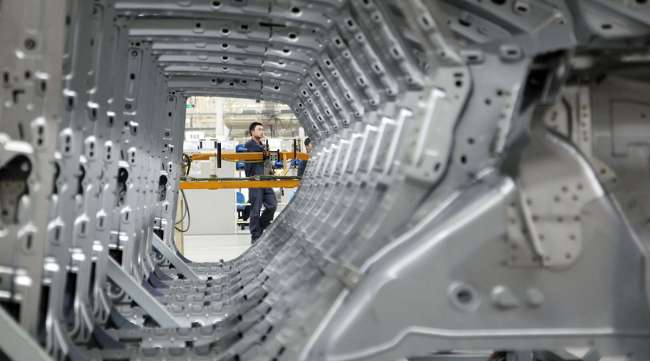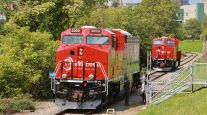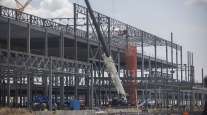Senate Panel Probes Carmakers’ Ties to Forced Labor in China

[Stay on top of transportation news: Get TTNews in your inbox.]
The Senate Finance Committee is launching an investigation into whether major automakers such as Ford Motor Co., General Motors Co. and Tesla Inc. are using parts made with forced labor from the Xinjiang region of China.
“Unless due diligence confirms that components are not linked to forced labor, automakers cannot and should not sell cars in the United States that include components mined or produced in Xinjiang,” Sen. Ron Wyden (D-Ore.), the committee’s chair, wrote in letters sent Dec. 22. “The United States considers the Chinese government’s brutal oppression of Uyghurs in Xinjiang an ‘ongoing genocide and crimes against humanity.’ ”
The letters, which were also sent to about half a dozen automakers including GM, Ford and Stellantis NV, follows a report from the U.K.’s Sheffield Hallam University that found links between Chinese companies operating in Xinjiang and the import of parts from automakers that include batteries, wiring and wheels, Wyden’s office said.
Representatives from GM, Ford and Stellantis, which sells cars under the Jeep and Ram brands, had no immediate reply to a request for comment.

Hosts Seth Clevenger and Mike Freeze mark 100 episodes of RoadSigns, which started off four years ago asking, "Autonomous: Who's Behind the Wheel of Tomorrow?" Now, see where trucking was in 2018 and where it's going in 2023. Hear a snippet, above, and get the full program by going to RoadSigns.TTNews.com.
The committee’s investigation comes amid increasing scrutiny about companies’ ties to China’s Xinjiang region where the U.S. has accused China of requiring hundreds of thousands of detainees — mostly Uyghur Muslims or other minorities — to work against their will. Beijing has denied those allegations.
Under the Uyghur Forced Labor Prevention Act, the U.S. government assumes anything made even partially in the Chinese manufacturing hub of Xinjiang is produced with forced labor and can’t be imported into America. Companies can win exemptions if they are able to provide “clear and convincing evidence” the goods are free of force.
— With assistance from Jennifer A. Dlouhy.
Want more news? Listen to today's daily briefing below or go here for more info:




